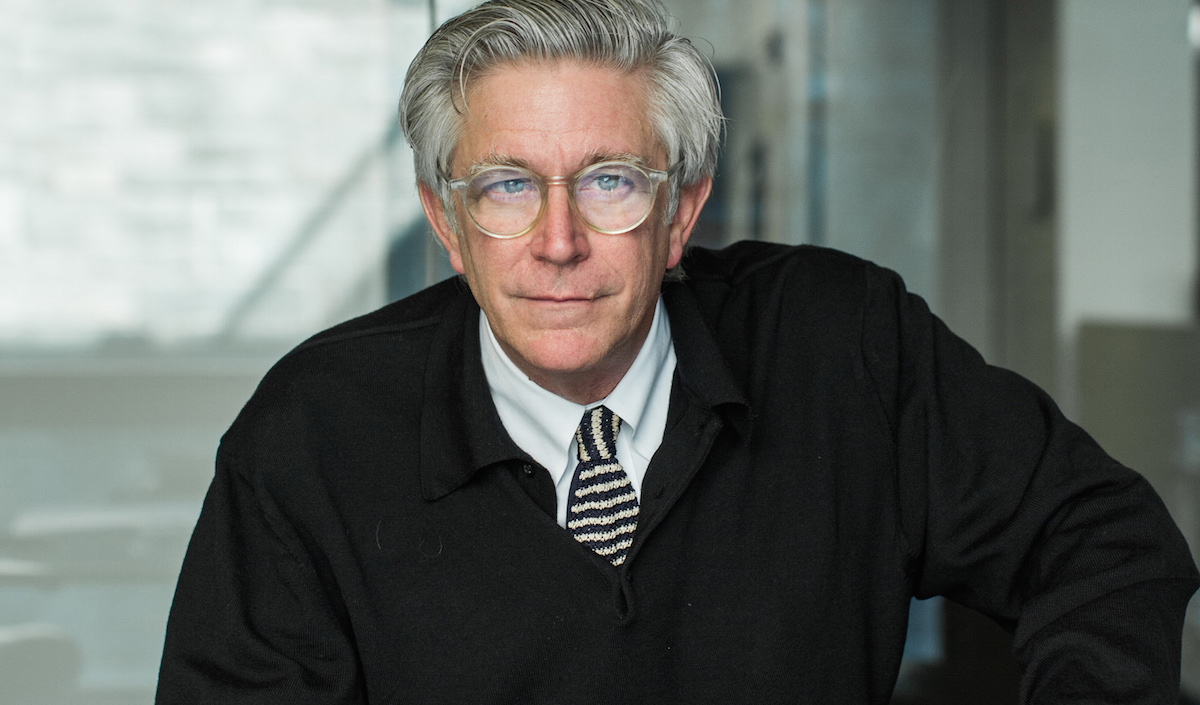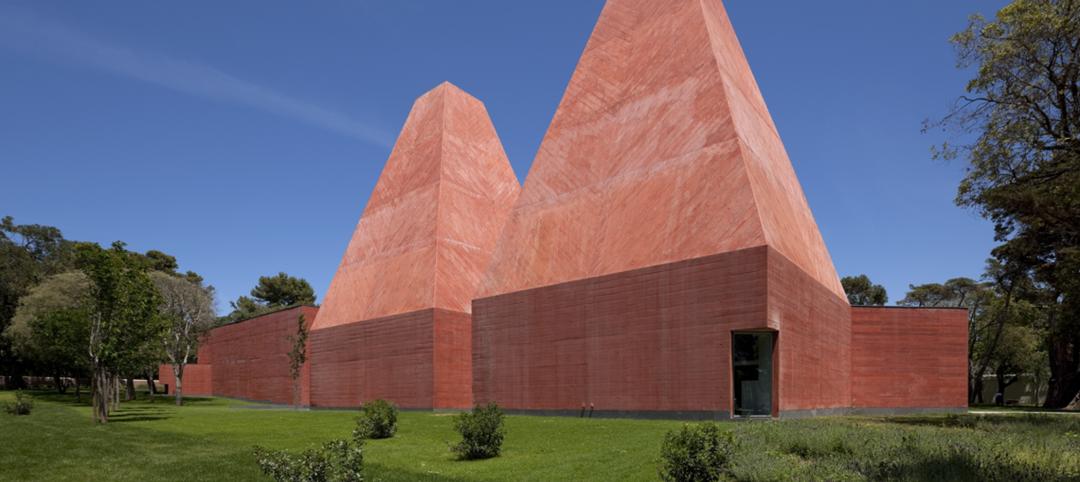Bill Hellmuth, AIA, officially took over as HOK’s Chief Executive Officer on April 19, with longtime CEO Patrick MacLeamy, FAIA, moving to chairman as part of a planned succession process that the firm first announced Jan. 25.
Hellmuth, who is based in the firm’s Washington, D.C., studio, has been HOK’s president since 2005. The firm will be led by a design principal for the first time since 1990, when Gyo Obata stepped down to assume the role of chairman. Hellmuth brings insight on managing the creative process—balancing the art and the business to generate the best design solutions and most value for clients. He will continue in his role as HOK’s firm-wide president and design principal for projects in the Washington, D.C., area and worldwide.
“Design excellence will define our future,” said Hellmuth. “I joined HOK in 1991 for the opportunity to be part of a practice that had the opportunity to do the best design work of its time. We’re now creating design solutions that address some of the world’s greatest challenges. We’ll continue broadening the scope of our creativity and problem solving and using design thinking to strengthen our design culture. This will continue to attract the best people and clients to HOK.”
Read more about Bill Hellmuth and his vision for the future of HOK in this Q+A profile.
HOK has current projects in 75 countries, and it has designed major urban plans, buildings and interior environments. Current and recent projects include the 80-story Capital Market Authority Tower in Riyadh, Saudi Arabia; the Porsche Cars North America Experience Center and Headquarters in Atlanta; the Anaheim Regional Transportation Intermodal Center (ARTIC) in Anaheim, California; and Mercedes-Benz Stadium in Atlanta.
HOK is a global design, architecture, engineering and planning firm with 24 offices worldwide. DesignIntelligence consistently ranks HOK as a leader in sustainable, high-performance design and technology innovation.
Related Stories
| Apr 5, 2011
Top 10 Buildings: Women in Architecture
Making selections of top buildings this week led to a surprising discovery about the representation of women in architecture, writes Tom Mallory, COO and co-founder, OpenBuildings.com. He discovered that finding female-created architecture, when excluding husband/wife teams, is extremely difficult and often the only work he came across was akin to interior design.
| Apr 5, 2011
What do Chengdu, Lagos, and Chicago have in common?
They’re all “world middleweight cities” that are likely to become regional megacities (10 million people) by 2025—along with Dongguan, Guangzhou, Hangzhou, Shenzhen, Tianjin, and Wuhan (China); Kinshasa (Democratic Republic of the Congo); Jakarta (Indonesia); Lahore (Pakistan); and Chennai (India), according to a new report from McKinsey Global Institute: “Urban World: Mapping the economic power of cities”.
| Mar 30, 2011
China's low-carbon future city
In 2005, the Chinese government announced its target to reduce energy consumption per GDP unit by 20% by the year 2010. After a multi-billion investment, that target has been reached. The Chinese Climate Protection Program’s goal to increase energy efficiency, develop renewable energies, and promote energy savings while reducing pollutant emissions and strengthening environmental protection is reflected in the “Future City” by SBA Design.
| Mar 30, 2011
Is the AEC industry at risk of losing its next generation leaders without better mentoring?
After two or three horrifying years for the AEC industry, we are finally seeing the makings of a turnaround. However, data developed by Kermit Baker as part of the AIA Work-on-the-Boards survey program indicates that between 17% and 22% of design firms are eliminating positions for interns and staff with less than six years of experience. This data suggests the industry is at risk of losing a large segment of its next generation of leaders if something isn't done to improve mentoring across the profession.
| Mar 29, 2011
City's design, transit system can ease gas costs
Some cities in the U.S. are better positioned to deal with rising gas prices than others because of their design and transit systems, according to CEOs for Cities, a Chicago-based nonprofit that works to build stronger cities. The key factor: whether residents have to drive everywhere, or have other options.
| Mar 29, 2011
Chicago’s Willis Tower to become a vertical solar farm
Chicago’s iconic Willis Tower (formerly the Sears Tower) is set to become a massive solar electric plant with the installation of a pilot solar electric glass project.
| Mar 29, 2011
Read up on Amazon.com's new green HQ
Phase IV of Amazon’s new headquarters in Seattle is nearly complete. The company has built 10 of the 11 buildings planned for its new campus in the South Lake Union neighborhood, and is on-track for a 2013 grand opening.
| Mar 29, 2011
Portuguese architect Eduardo Souto de Moura wins Pritzker Architecture Prize
Portugese architect Eduardo Souto de Moura, whose precisely-honed buildings reflect the influence of the late Chicago modernist Mies van der Rohe, is the 2011 winner of the Pritzker Architecture Prize, the field's highest honor.
| Mar 25, 2011
Qatar World Cup may feature carbon-fiber ‘clouds’
Engineers at Qatar University’s Department of Mechanical and Industrial Engineering are busy developing what they believe could act as artificial “clouds,” man-made saucer-type structures suspended over a given soccer stadium, working to shield tens of thousands of spectators from suffocating summer temperatures that regularly top 115 degrees Fahrenheit.












